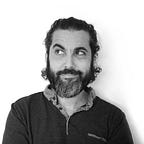A Time(table) for Soft Skills
Schedule some time for what’s important.
Here’s we look at some expert advice for what classes should consist of, in an age of awareness of the importance of soft skills.
New pedagogy now distinguishes between hard skills and soft skills, putting more emphasis on soft skills as more important for preparing learners for the future.
Hard skills are specific, teachable abilities that can be defined and measured, such as typing, writing, math, reading and the ability to use software programs.
By contrast, soft skills are less tangible and harder to quantify, such as etiquette, getting along with others, listening and engaging in small talk.
We wanted to list some expert recommendations for soft skills that our kids will be needing, and that will contribute to their lives and wellbeing. We arranged these as classes in a school’s timetable to illustrate a new take on what a school’s week can look like.
Eyal Doron, PhD, a researcher into creative thinking and the developer of the SEISEI method, recommends classes for a future that is ever-changing:
- Initiative and grit, such as the ability to take control and to persist, and even to know when and how to get out of certain situations.
- Attention to details, such as the ability to be aware to one’s environment and identify and focus on what’s important.
- Creative thinking, including flexibility of thought, problem solving on-the-fly, and knowing how to improvise and adapt.
- Decision making and responsibility, fostering independence and good judgement, which at present can even help do away with parental control.
Professor of education Izhar Oplatka, head of policy and management in education at TAU, is proposing experiential classes for the younger ages and classes for life skills as individuals in society.
- Craft, as contrast to more theoretical studies, to allow for more time to be tactile and active.
- Dance, to improve motor skills, reduce attention deficit and contribute to overall joy.
- Financial education, teaching intelligent consumerism, comparison skills, critical consumption of commercial content and delaying gratification, as well as helping in entrepreneurship and business management.
- Health, including eating right and maintaining fitness.
Adi Harpaz, family counselor and parenting advisor, focuses more on emotional skills, to counterbalance our attachment to and dependence on technology.
- Social skills, developing the ability to listen, converse, relate and be emphatic, in a wide range of social situations.
- Emotions management, such as being able to understand one’s own feelings as well as communicate them to others.
- Relationships, as the anchor to all our interactions with other people, acquiring the tools to have a wide variety of different types.
- Leadership, mostly to do with leading one’s own self by having self awareness, setting goals and planning for achieving them, and learning from mistakes that are ultimately inevitable.
Gili Roman, head of the Eastern Mediterranean International School, is putting emphasis on cognitive skills through interactive classes.
- Technological literacy, from data gathering and analysis skills to the ability to authenticate data sources.
- Knowledge theory, having critical thinking and acting based on logic, imagination, emotion and the senses.
- Metacognition, where student learn to think about their own thinking.
- Exposure, in which students are exposed to uncommon fields of study, different cultural standards and customs, and other foreign subjects and domains that they wouldn’t normally encounter or have access to.
What do YOU think is important to have in today’s classrooms to prepare them for the world of tomorrow?
